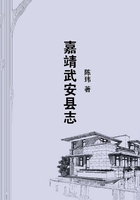THE FLINT AND THE STEEL
Mademoiselle will see you, monsieur," said Anatole at last.
Twice already had he carried unavailingly my request that Roxalanne should accord me an interview ere I departed. On this the third occasion I had bidden him say that I would not stir from Lavedan until she had done me the honour of hearing me. Seemingly that threat had prevailed where entreaties had been scorned.
I followed Anatole from the half-light of the hall in which I had been pacing into the salon overlooking the terraces and the river, where Roxalanne awaited me. She was standing at the farther end of the room by one of the long windows, which was open, for, although we were already in the first week of October, the air of Languedoc was as warm and balmy as that of Paris or Picardy is in summer.
I advanced to the centre of the chamber, and there I paused and waited until it should please her to acknowledge my presence and turn to face me. I was no fledgling. I had seen much, I had learnt much and been in many places, and my bearing was wont to convey it.
Never in my life had I been gauche, for which I thank my parents, and if years ago - long years ago - a certain timidity had marked my first introductions to the Louvre and the Luxembourg, that timidity was something from which I had long since parted company. And yet it seemed to me, as I stood in that pretty, sunlit room awaiting the pleasure of that child, scarce out of her teens, that some of the awkwardness I had escaped in earlier years, some of the timidity of long ago, came to me then. I shifted the weight of my body from one leg to the other; I fingered the table by which I stood; I pulled at the hat I held; my colour came and went; I looked at her furtively from under bent brows, and I thanked God that her back being towards me she might not see the clown I must have seemed.
At length, unable longer to brook that discomposing silence -"Mademoiselle!" I called softly. The sound of my own voice seemed to invigorate me, to strip me of my awkwardness and self-consciousness.
It broke the spell that for a moment had been over me, and brought me back to myself - to the vain, self-confident, flamboyant Bardelys that perhaps you have pictured from my writings.
"I hope, monsieur," she answered, without turning, "that what you may have to say may justify in some measure your very importunate insistence."On my life, this was not encouraging. But now that I was master of myself, I was not again so easily to be disconcerted. My eyes rested upon her as she stood almost framed in the opening of that long window. How straight and supple she was, yet how dainty and slight withal! She was far from being a tall woman, but her clean length of limb, her very slightness, and the high-bred poise of her shapely head, conveyed an illusion of height unless you stood beside her. The illusion did not sway me then. I saw only a child; but a child with a great spirit, with a great soul that seemed to accentuate her physical helplessness. That helplessness, which Ifelt rather than saw, wove into the warp of my love. She was in grief just then - in grief at the arrest of her father, and at the dark fate that threatened him; in grief at the unworthiness of a lover. Of the two which might be the more bitter it was not mine to judge, but I burned to gather her to me, to comfort and cherish her, to make her one with me, and thus, whilst giving her something of my man's height and strength, cull from her something of that pure, noble spirit, and thus sanctify my own.
I had a moment's weakness when she spoke. I was within an ace of advancing and casting myself upon my knees like any Lenten penitent, to sue forgiveness. But I set the inclination down betimes. Such expedients would not avail me here.
"What I have to say, mademoiselle," I answered after a pause, "would justify a saint descending into, hell; or, rather, to make my metaphor more apt, would warrant a sinner's intrusion into heaven."I spoke solemnly, yet not too solemnly; the least slur of a sardonic humour was in my tones.
She moved her head upon the white column of her neck, and with the gesture one of her brown curls became disordered. I could fancy the upward tilt of her delicate nose, the scornful curve of her lip as she answered shortly "Then say it quickly, monsieur."And, being thus bidden, I said quickly "I love you, Roxalanne."Her heel beat the shimmering parquet of the floor; she half turned towards me, her cheek flushed, her lip tremulous with anger.
"Will you say what you have to say, monsieur?" she demanded in a concentrated voice, "and having said it, will you go?""Mademoiselle, I have already said it," I answered, with a wistful smile.
"Oh!" she gasped. Then suddenly facing round upon me, a world of anger in her blue eyes - eyes that I had known dreamy, but which were now very wide awake. "Was it to offer me this last insult you forced your presence upon me? Was it to mock me with those words, me - a woman, with no man about me to punish you? Shame, sir! Yet it is no more than I might look for in you.""Mademoiselle, you do me grievous wrong - " I began.
"I do you no wrong," she answered hotly, then stopped, unwilling haply to be drawn into contention with me. "Enfin, since you have said what you came to say will you go?" And she pointed to the door.
"Mademoiselle, mademoiselle - " I began in a voice of earnest intercession.
"Go!" she interrupted angrily, and for a second the violence of her voice and gesture almost reminded me of the Vicomtesse. "I will hear no more from you.""Mademoiselle, you shall," I answered no whit less firmly.
"I will not listen to you. Talk if you will. You shall have the walls for audience." And she moved towards the door, but I barred her passage. I was courteous to tine last degree; I bowed low before her as I put myself in her way.
"It is all that was wanting - that you should offer me violence!"she exclaimed.
"God forbid!" said I:
"Then let me pass."
"Aye, when you have heard me."













